April 13, 2025 | 22:56 GMT +7
April 13, 2025 | 22:56 GMT +7
Hotline: 0913.378.918
April 13, 2025 | 22:56 GMT +7
Hotline: 0913.378.918
According to the Vietnam Pepper and Spices Association (VPSA), Vietnam has exported 34,000 tons of cinnamon, generating a total revenue of USD 101 million from January to May. This represents a year-on-year increase of 27.8% in terms of volume and 0.7% in terms of value.
During the initial four-month period of the year, the primary export destinations for Vietnamese cinnamon were India, which constituted 37% of the market share with an increase of 38% and a volume of almost 13,000 tons; Bangladesh, accounting for 11.6% of the market share with a volume of nearly 4,000 tons and an increase of 102%; the US, which accounted for 11.4% of the market share with a volume of almost 3,000 tons and a decrease of 7.9%; and China, which made up for 3.2% of the market share with a volume of 1,078 tons and an increase of 1,934%.
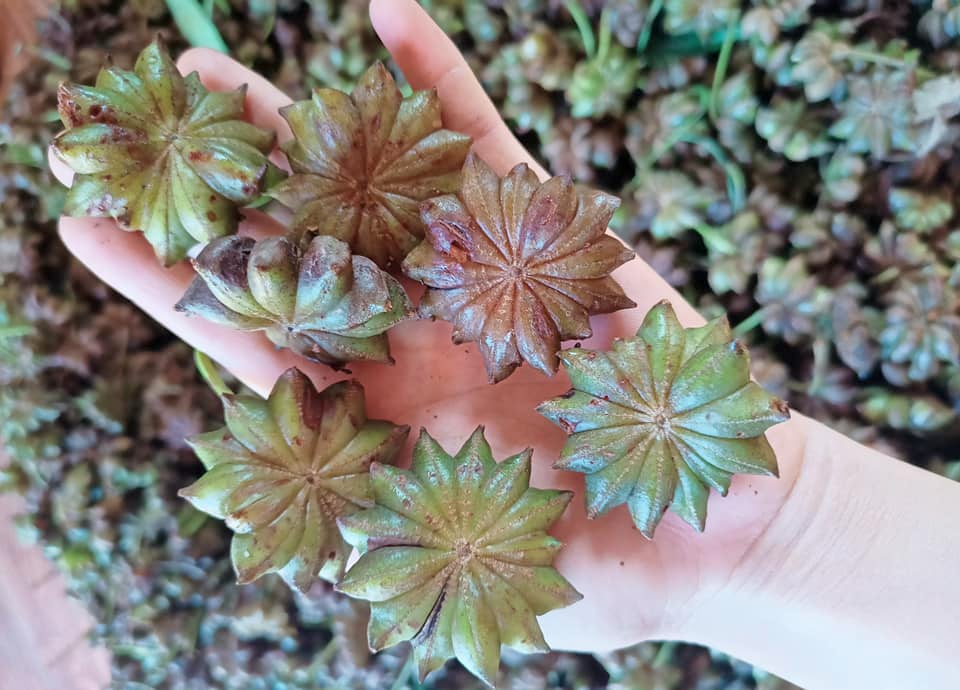
Fresh star anise in Lang Son. Photo: Son Trang.
The exportation of star anise from Vietnam showed robust growth during the initial months of the current year. During the initial quarter of 2023, Vietnam's export of star anise amounted to 3,369 tons, generating a turnover of USD 21.6 million. This represents a significant increase of 262% in terms of export volume compared to the same period in the previous year.
Vietnamese cinnamon is gaining popularity in various markets, in addition to its largest market, India. As per the statement of Ms. Tran Thu Quynh, the Commercial Counselor of Vietnam in Canada, in the year 2022, prominent Canadian supermarkets namely Costco and Walmart have significantly imported Vietnamese cinnamon, amounting to a turnover of USD 8.6 million. This figure represents a notable increase of 43.3% in comparison to 2021. According to Ms. Quynh, the robust growth trend of Vietnamese cinnamon may enable it to capture up to 50% of the cinnamon market share in Canada in the foreseeable future.
According to Ms. Thu Quynh, there is an increasing tendency among Canadians to favor and utilize cinnamon for both cooking and healthful purposes. In recent years, particularly in the wake of the COVID-19 pandemic, numerous studies have demonstrated the efficacy of cinnamon in enhancing the immune system. The Comprehensive and Progressive Agreement for Trans-Pacific Partnership (CPTPP) has facilitated a tariff advantage for Vietnam's cinnamon, enabling it to outperform competitors such as Indonesia and India in the Canadian market.
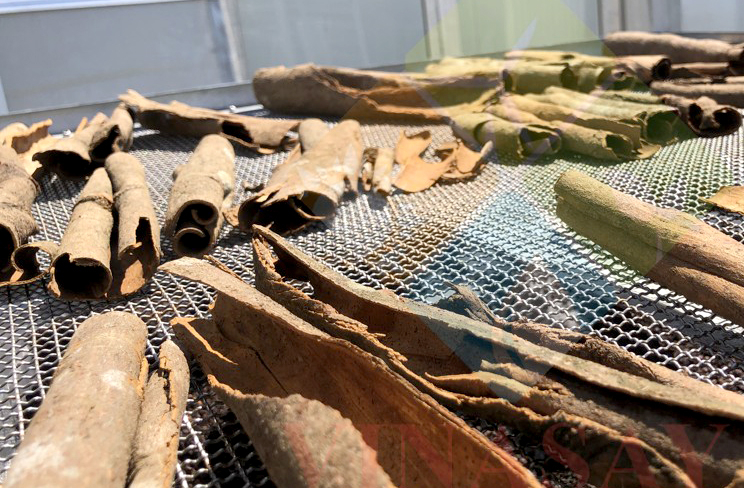
Cinnamon is being dried in a kiln in Yen Bai. Photo: Son Trang.
To enhance the market share and export revenue of cinnamon in Canada, according to Ms. Thu Quynh, the cinnamon industry in Vietnam requires a strategic approach to establish a geographical indication for cassia cinnamon products originating from Vietnam. This would serve to enhance the promotion and validation of the distinctive qualities of Vietnamese cinnamon. This study aims to explore the differences between cassia cinnamon and ceylon cinnamon, particularly in terms of their specific places of origin. Moreover, it is essential for enterprises to collaborate with other sectors to enhance the significance of profound processing and launch novel commodities into the market, such as cinnamon flower honey and cinnamon essential oil-infused candles.
In Taiwan, there is a preference for Vietnamese cinnamon and star anise. As per the Vietnam Economic and Cultural Office in Taipei, the Bureau of Foreign Trade, Ministry of Economic Affairs (BOFT) statistics reveal that Taiwan procures cinnamon and anise products worth almost USD 4 million annually.
At present, Vietnam has emerged as the primary supplier of cinnamon and anise to Taiwan, outpacing other traditional sources like China, India, and Sri Lanka. Vietnam's cinnamon and anise commodities that are being imported into Taiwan are presently subjected to the most-favored-nation (MFN) tariff rate of 0%, similar to other members of the World Trade Organization (WTO). Cinnamon and star anise are commonly utilized in Taiwan for both traditional Chinese health benefits and as a regular culinary seasoning.
According to VPSA, it holds a prominent position as a global producer and exporter of spices. As per the International Trade Center (ITC), Vietnam's exports of pepper and spices constitute approximately 11% of the worldwide market share in the year 2022. Vietnam is the primary origin of pepper, cinnamon, star anise, and other related commodities for significant markets including the United States, European Union, China, India, and the Middle East.
Vietnam is presently ranked as the third most significant global producer of cinnamon, following Indonesia and China, with respect to this particular spice. The export value of cinnamon and anise in Vietnam has demonstrated a consistent upward trend, with approximately USD 276 million in the year 2022.
According to Ms. Hoang Thi Lien, who serves as the Chairwoman of VPSA, Vietnam holds a notable production capacity for pepper, cinnamon, and anise, among other significant spices. As a result, the country has set a specific objective to achieve by 2025, which entails exporting a total of 400,000-500,000 tons of the entire pepper industry and seasoning, with an estimated turnover of approximately USD 2 billion.
Translated by Linh Linh
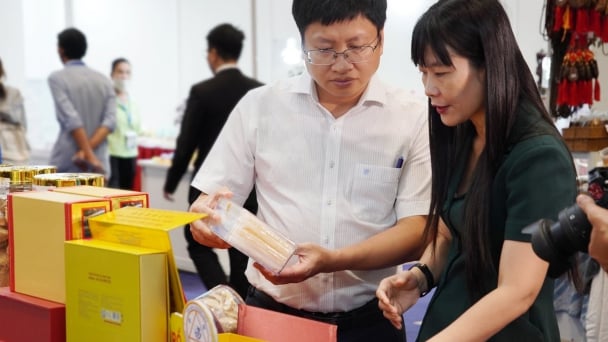
(VAN) KOCHAM Deputy President expects that Vietnam would accelerate innovation and development of bird’s nest-based products as a representation of Vietnamese culture.
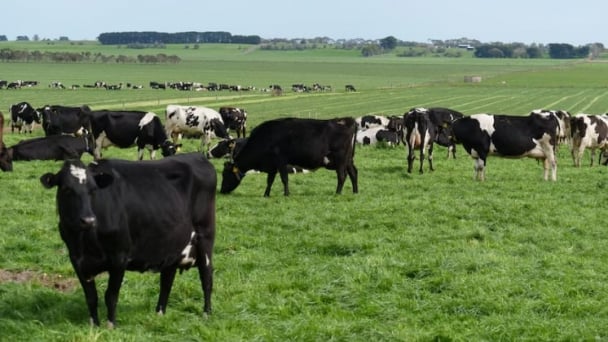
(VAN) Imported dairy products are weakening the local industry, according to dairy farmers and processors.
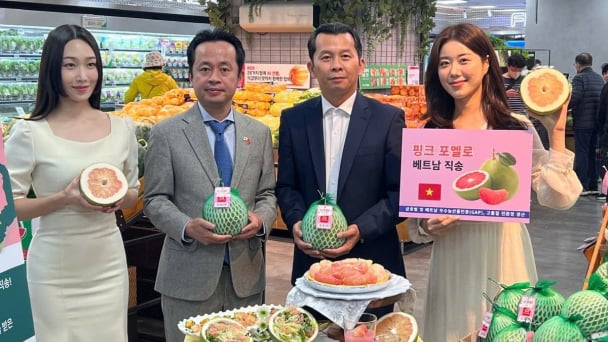
(VAN) April 10 marked a significant milestone for Vietnam's agricultural exports as Vietnamese pomelos officially became available at the Lotte Mart supermarket chain in South Korea.

(VAN) Vietnam is focusing on developing the legal framework and technical infrastructure for the carbon market, with committed support from global financial institutions.
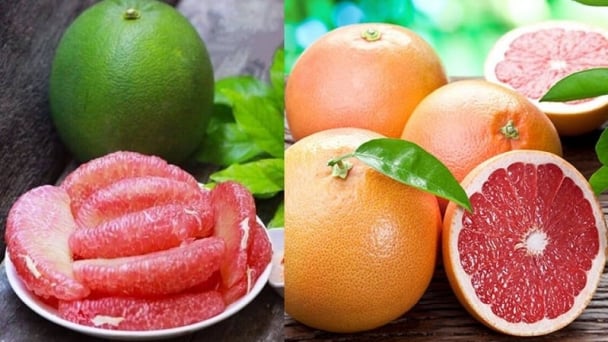
(VAN) The citrus fruits market in China is expected to slow down, but still show steady expansion, with volume reaching 56M tons and value reaching $71B by the end of 2035.
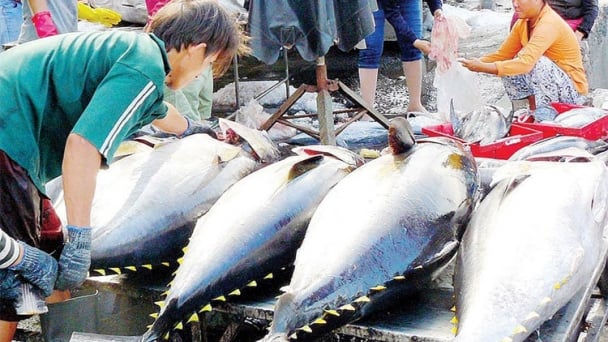
(VAN) The European Union issued a notice regarding the amendment of Annex III of Regulation (EC) No 853/2004 and aims to introduce new provisions in the fourth quarter of 2025.
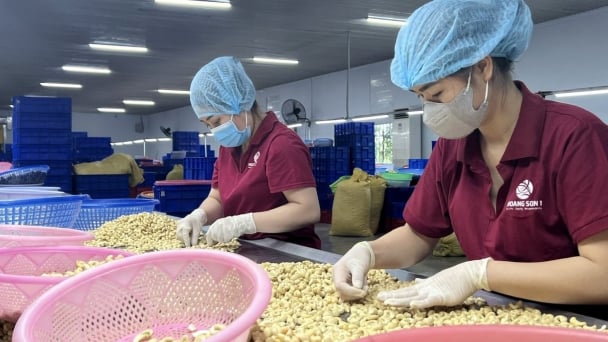
(VAN) Vietnam has great potential for exporting food to the global Halal market, but there is a need to build an ecosystem to develop this market.